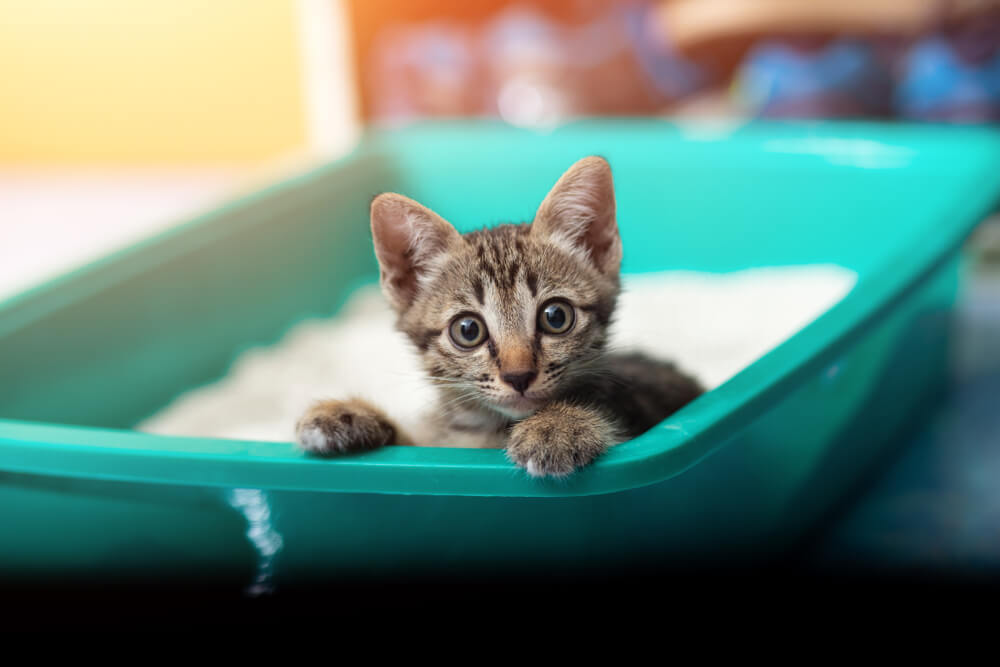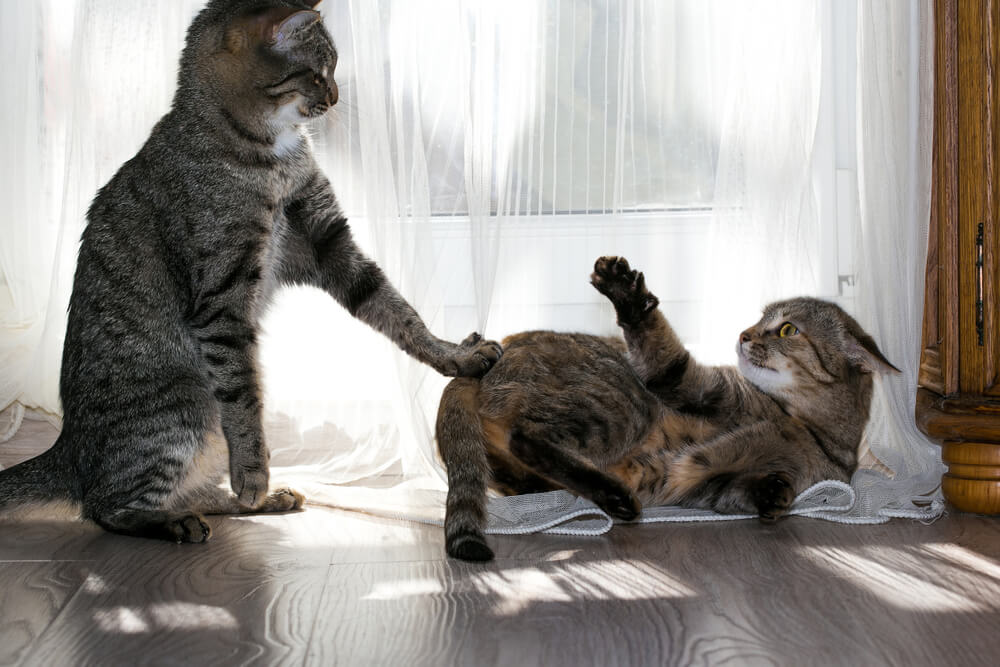
Your cat looks so adorable curled up on the couch, but after finding puddles on the floor, you are not feeling affectionate. Attempting to discipline a cat is futile and will only make the situation worse. What can you do to remedy the situation? The team at Towne Centre Animal Hospital has a list of tips that should help mitigate this predicament.
When your cat begins eliminating outside the litter box, you should first have their health status evaluated. Urinary tract infections, kidney disease, diabetes, and any malady that makes them uncomfortable can lead to this behavior. These issues also can be life-threatening, and should be investigated promptly. Once our veterinary team finds your cat healthy, we will explore other motives such as the following.
#1: Your cat likes their own box and their own choice of box
The general rule is one litter box per cat, plus an extra box. For example, in a three-cat household, four boxes should be provided. Most cats do not like to use the same litter as another cat, and multiple boxes ensures that each cat can keep their business to themselves.
Also, provide a litter box on each floor of your home, if possible, or place them in multiple locations, if not. Avoid moving the boxes around once you have found a location the cats favor. Cats like choices, not change.
#2: Your cat does not want to eat in the bathroom or in a place with loud noises
Keep all food and water bowls in a separate room from your cat’s litter box. Cats do not like eating near their toilet. Don’t you get upset when the waiter seats you at the table closest to the restroom?
Avoid putting the boxes in areas where commotion or noise will aggravate your cat. While placing the litter box in the laundry room may be convenient for you, your cat does not want to be using the facilities when the washer spin cycle starts.
#3: Your cat likes wide open spaces
Covered boxes are great for keeping inside the excess litter that your cat flings everywhere, but cats do not like to be closed in when powdering their nose. Sweeping up a mess is preferable to mopping up one.
#4: Your cat enjoys room to move around
Provide boxes that are large enough for your cat to move around. They appreciate being able to scratch in multiple spots before choosing where they want to go. Older cats may suffer from arthritis, making maneuvering in small spaces difficult.
#5: Your cat does not like a mess
Cats prefer using a clean box, which is ironic, since not using the litter box results in a bigger mess. But, reasoning with a cat is never productive! Scoop the litter frequently, and change out the litter and clean the entire box weekly.
#6: Your cat has a sensitive nose, and may have sensitive paw pads
Choose unscented, clumping litter. You may like the fragrant scent of some litters, but your cat is not likely to be impressed. Cats’ sense of smell is more potent than ours, and the scented litters can be overpowering for them.
Some cats’ foot pads are so tender that they find the litter’s abrasiveness uncomfortable. Litters formulated to be gentler on their paws are available, but you may have to experiment to discover which material your pet prefers.
#7: Your cat is a nature lover
If cats are new to being indoors, or if they spend time inside and out, they may favor more natural litter box materials, such as sand, corn, walnut shells, and wood pellets.
#8: Your cat is territorial
Many cats, especially unneutered males, tend to mark their territory. Limiting their exposure to windows where they can see other animals can help, but neutering an intact cat usually solves the problem.
#9: Your cat is stressed out
Cats are extremely sensitive creatures, and any change in their environment, such as introducing a new pet, moving to a new home, or something as benign as an overnight guest, can cause anxiety. A stressed cat is more likely to consider their litter box optional, but once you discover the source of your pet’s anxiety, you can investigate ways to best diffuse the situation.
#10: Your cat is being bullied

Multiple cats in the household can lead to one attempting to show dominance. A cat who feels threatened in their own home will become anxious, which can lead to inappropriate litter behavior. Separating the cats may become necessary if the dominant cat becomes too aggressive.
Having a cat who refuses to use the litter box is a frustrating situation. With these tips, we hope your cat will be more amenable to behaving appropriately. If your cat has recently started eliminating outside the box, contact Towne Centre Animal Hospital to schedule an appointment. We will help you remedy this messy problem.
